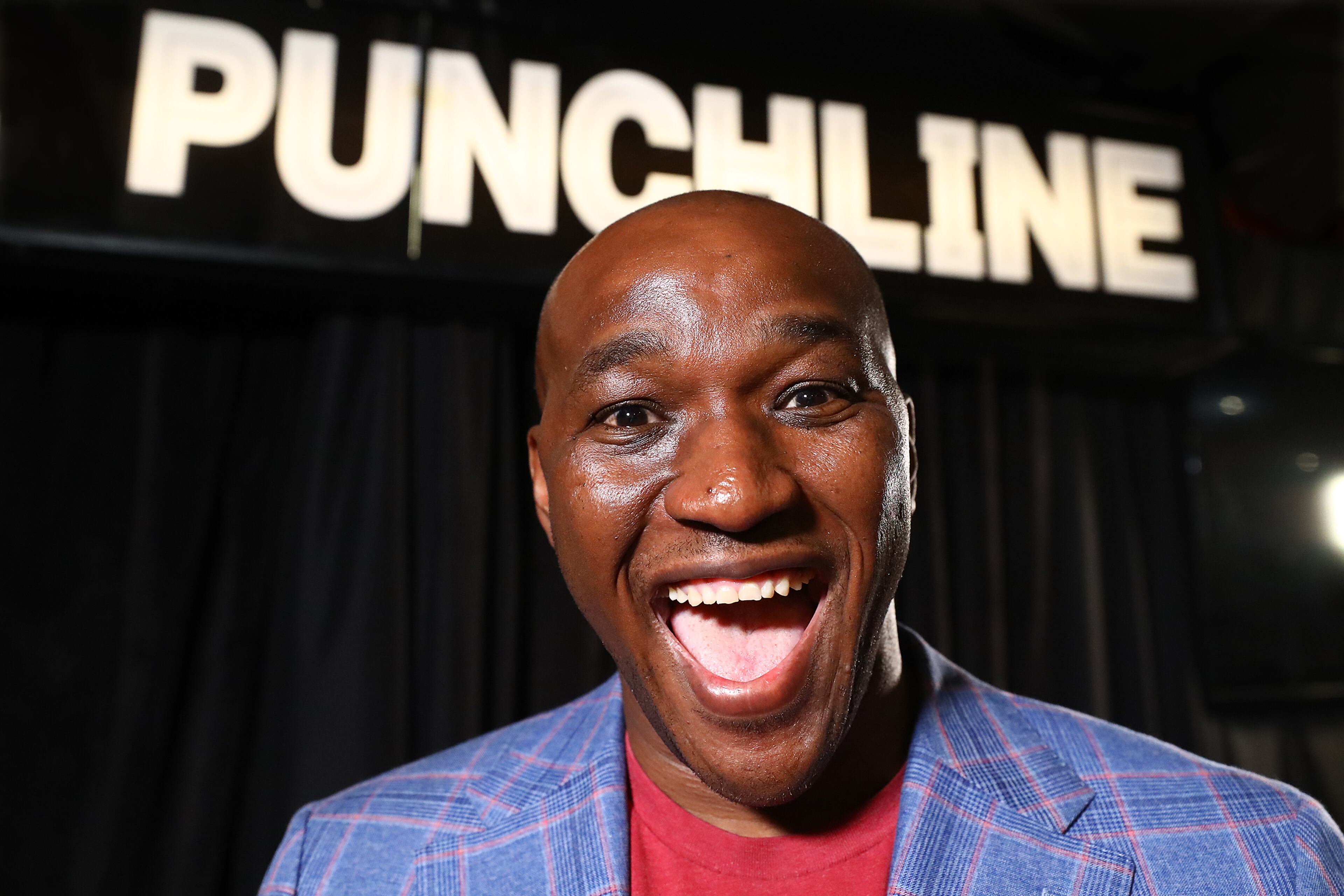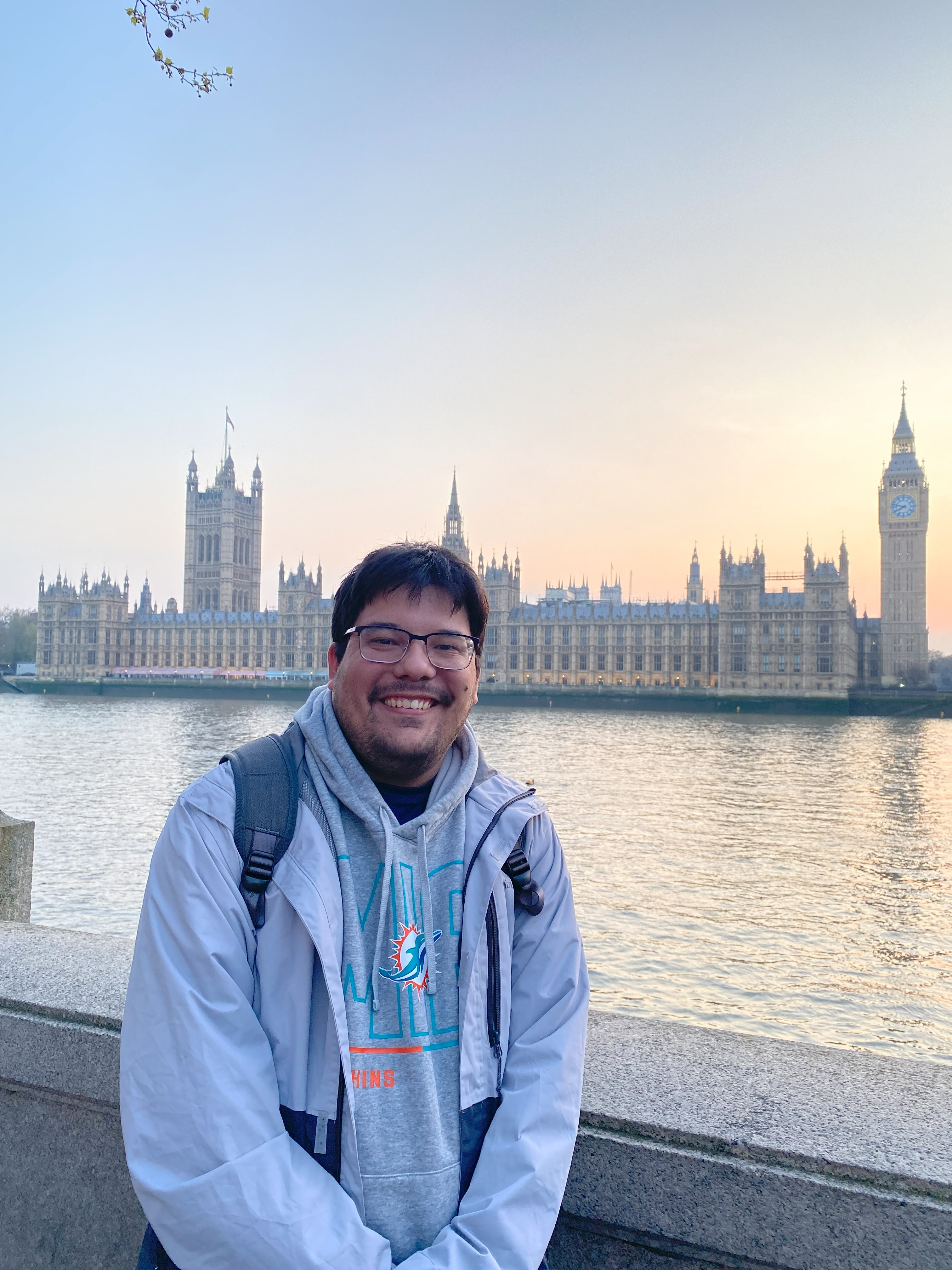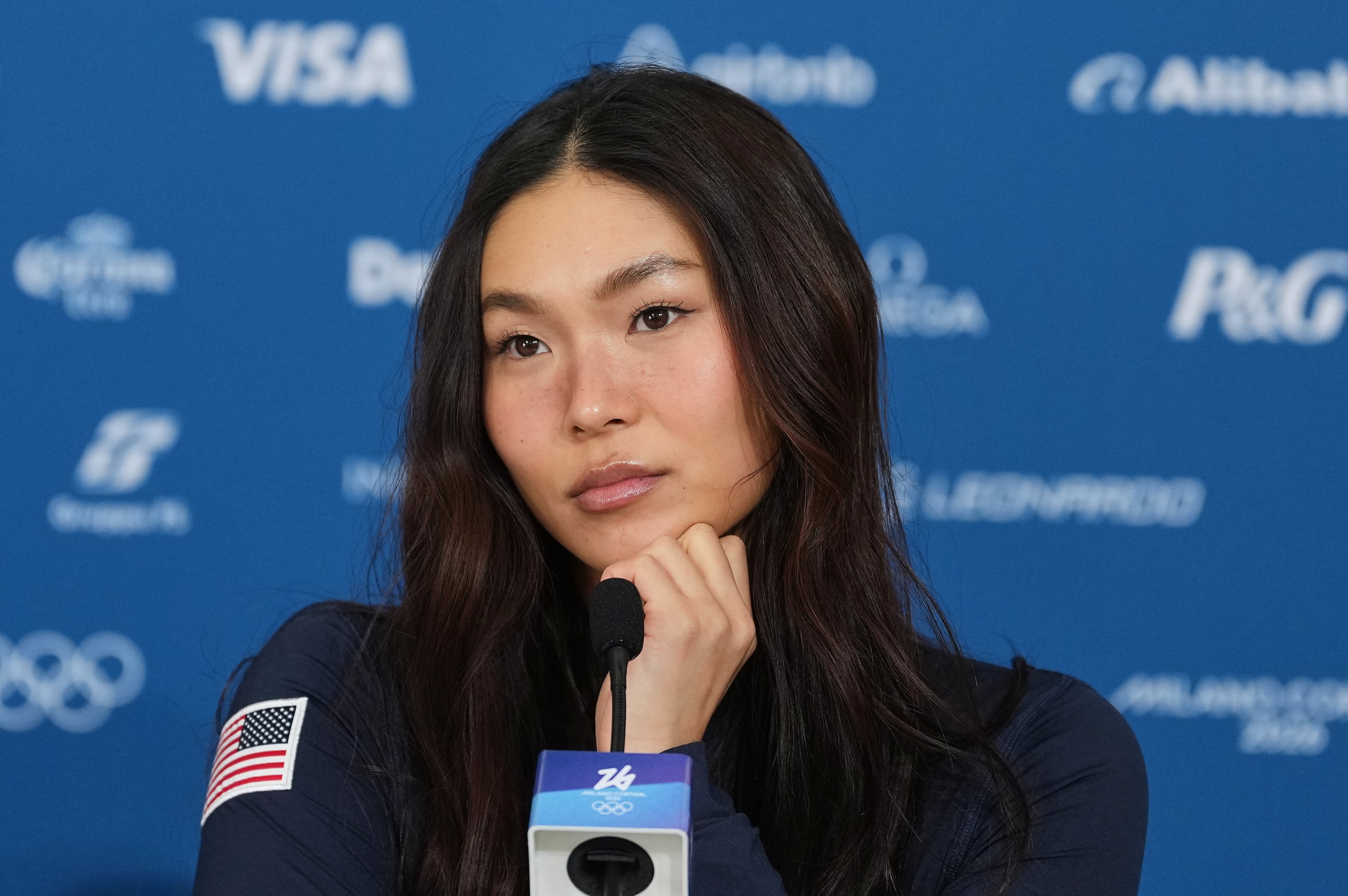The face of immigration
A sky full of vibrant fireworks. The scent of burgers and hotdogs grilling in the summer heat. The Fourth of July is usually a day to gather with family and celebrate American independence.
But for many immigrants, it’s a day to remember the sacrifices they and their families made to start over in the United States. In search of a better life and opportunities, immigrants from South America to Africa to Asia move to the U.S., receive their citizenship and create their own version of what it means to be American.
For some, the holiday signifies freedom and opportunity; for others, the ability to make a difference and become part of a new country. The Atlanta Journal-Constitution photographed and interviewed nine immigrants from eight countries to learn what being American means to them.

Nigeria
From the time he came to the United States at age 5 in 1985 from Nigeria, Yoshee So felt the need to make his parents proud. To that end, the 42-year-old Alpharetta father, husband, marketing executive, stand-up comedian and DJ has taken every opportunity thrown at him.
As a child, So remembers growing up feeling like an American outside his home, but inside the home his family clung to their Nigerian roots. His parents meshed the two cultures together, but after so many years here, So has come to identify more with the U.S.
Becoming a citizen after he turned 18, So was relieved of the nagging fear that rules might change and he would be forced to return to Nigeria.
“I think becoming a citizen is the culmination of all the hard work that my parents did to leave their situation to make it happen in this country,” he said. “It’s hard not to be grateful for how industrious, successful America is.”
For him, July 4th is a time to remember the struggle his parents endured to provide him and his siblings with opportunities they would not have had in Nigeria.
“It’s much more special as an immigrant knowing that your parents worked hard to get you here. (We’re) going to celebrate America in a very major way,” he said.

Philippines
Smyrna resident Josephine “Arjho” Turner, 45, came to the United States from the Philippines in 2006 with her American husband when she was 29. She could have maintained dual citizenship, but she knew she wanted to build a life in the U.S. and raise her kids here. Giving up her Filipino citizenship wasn’t a difficult choice.
Turner, who worked for the government in the Philippines and now runs a consulting business, was motivated to became a naturalized citizen as soon as possible in 2010 so she could vote.
“I know that I have to be engaged civic-wise, and the best way for me to be engaged in that space is to be a naturalized American citizen and have the same equal rights as anyone else.”
As proud as she is to be an American and the mother of two American-born children, she celebrates Filipino-American Friendship Day on July 4th, just as she did back home. She uses the opportunity to educate her kids on the importance of American and Filipino independence while they enjoy an American-style picnic.
“It is about the sacrifices of so many people beforehand to also liberate this country, you know, from an occupation. I value knowledge about history because if you know your history, you know your roots,” Turner said.

Brazil
Paula Pontes, 46, says she has two United States birthdays: the day she arrived in the U.S. and the day she got her citizenship.
Pontes arrived in 1998 to attend graduate school at the University of Georgia. Her husband, 43-year-old Diogo Pinheiro, followed three years later to pursue studies at Emory University. Pontes now teaches at Pace Academy, and Pinheiro is a professor at the University of North Georgia.
The Buckhead couple received their citizenship in May 2017, relieving Pontes of the difficulty of having to return to Brazil every year and stand in a long line at the consulate in Rio de Janiero to renew her annual student visa. She recalls how challenging it was to find a job that would sponsor her work visa. She applied to several academic jobs before Pace Academy offered to sponsor her.
The opportunities in academia in the U.S. don’t compare to Brazil, said Pinheiro, because of “the differences in resources between what the universities in the United States can offer and what the universities in Brazil can offer.”
Having to overcome so many barriers to stay in the U.S., the couple say the July 4th holiday is special. This year they will celebrate with a barbecue in the Brazilian city of Belo Horizonte, where they met, surrounded by family.
“It is a time to reflect on everything that has been given to me by this country and to celebrate and be grateful for that,” Pontes said.

Costa Rica
Marielos Bond, 74, has experienced many cultures, having lived in Costa Rica, Peru, Venezuela and Panama, where she and her American husband lived under the ruthless rule of dictator Manuel Noriega.
But when she came to the United States in 1988, she fell in love with it as soon as she arrived. She now lives in Alpharetta and works at Lanier Technical College as a GED and ESL instructor.
“The United States is a magnificent country that brings together so many cultures and it gives so many opportunities for people that are here. If you are willing to work hard and to study, you do well,” Bond said.
Being a U.S. citizen gives Bond a sense of freedom, peace and security she didn’t always have in other countries, she said. And she makes sure her voice is heard by voting in every election. For her, voting is a privilege and a duty.
Although proud to be an American, she still holds her roots close to her heart.
“The Costa Rican citizenship is very ingrained in me. I’m very proud of my country. I come from a very beautiful and peaceful country,” she said.

Mexico
Belen Paez, 44, moved to the U.S. with her American husband more than 20 years ago, but she didn’t become a U.S. citizen until 2019 because she was intimidated. Many people told her it was too difficult, but she proved them wrong.
“Do it,” she advised other immigrants.
Paez moved to the U.S. to give her children more opportunities, and she became a citizen so she could vote and help make changes to benefit the Hispanic community. The Atlanta resident wants to make sure her voice is heard.
“As Hispanics, we can be part of the United States with our vote,” she said.
As proud as she is to be an American citizen, Paez still feels an emotional connection to the place of her birth.
“Being Mexican will always be in my blood,” she said.
This interview was conducted in Spanish and translated into English.

Jamaica
Stefan Stubbs, 22, of Snellville, was 8 years old when he came to live in the United States with his father, who had already immigrated here. His mother and siblings eventually followed.
Stubbs’ parents came here seeking a better life for him, but he struggled for years to fit in.
“In third grade, I came home to my dad and I was complaining to him that I don’t fit in with the other kids because, you know, Americans have their own terminology and (African American vernacular),” he said.
As he grew up, he vacillated between feeling like a mixture of both cultures and feeling like he didn’t belong to either one.
“I’m still Jamaican, but I wouldn’t identify as American, because I still don’t fit into the culture. Although I assimilated, there’s a lot of things that I’m still not used to,” said Stubbs, who said he’s learned to code-switch depending on the situation.
A recent graduate of Georgia State University, he continues doing research with the college and hopes to one day go to medical school and become an anesthesiologist.
Stubbs used to celebrate the Fourth watching the laser show at Stone Mountain Park, but the more he’s learned about Black history, the less Independence Day means to him, he said.

Vietnam
Huyen Nguyen was 7 when her family moved to Morrow from Vietnam.
“It’s a sacrifice that my parents made for me to get a better education,” she said.
She was a freshman at Georgia State University when she and her parents got their U.S. citizenship. Now Nguyen, 27, is a nurse manager at Georgia Regional Hospital Atlanta where she works with the mentally ill.
Her parents only speak Vietnamese, so although Nguyen has mastered the English language, she happily returns to her native language when she’s at home.
“We have a policy for us to keep our Vietnamese because a lot of children when they grow up here, they don’t speak their own language anymore,” Nguyen said. “That means no English at home, so that way we can keep our native language.”
Nguyen wonders whether she would enjoy the same level of independence she has in the United States if she were back in Vietnam. Women marry young there, and education is not as accessible, she said.
“Being an American is being independent and just focusing on yourself and doing whatever you feel like doing,” said Nguyen. In Asian countries “your parents kind of decide where you have to go, what you have to do. But when we’re in America, well, you can do whatever you want to do,” she said.

Burma
Ree Paw, 33, and her family were forced to flee civil strife in Burma when she was 6 years old. The world’s longest ongoing civil war continues to rage there today. She spent 12 years living in a refugee camp in Thailand before coming to the U.S. in 2011 as a refugee — first to Idaho and then Atlanta.
She became a citizen in 2020 and now lives in Stone Mountain.
“It’s home,” Paw said when asked what the U.S. means to her. “(It) means a lot to me. I can support myself. I can support my family. Here, it’s easy to find a job, and you can provide for yourself more easily.”
Paw doesn’t do anything special on the Fourth of July because she usually works that day. She is a team leader for Fresh Harvest grocery delivery service, where 70% of the workforce is comprised of former refugees.
Still, the holiday symbolizes freedom to her.
“Everyone can go on vacation, can celebrate with family,” she said. “I don’t really celebrate it, but I spend time with my family mostly.”




